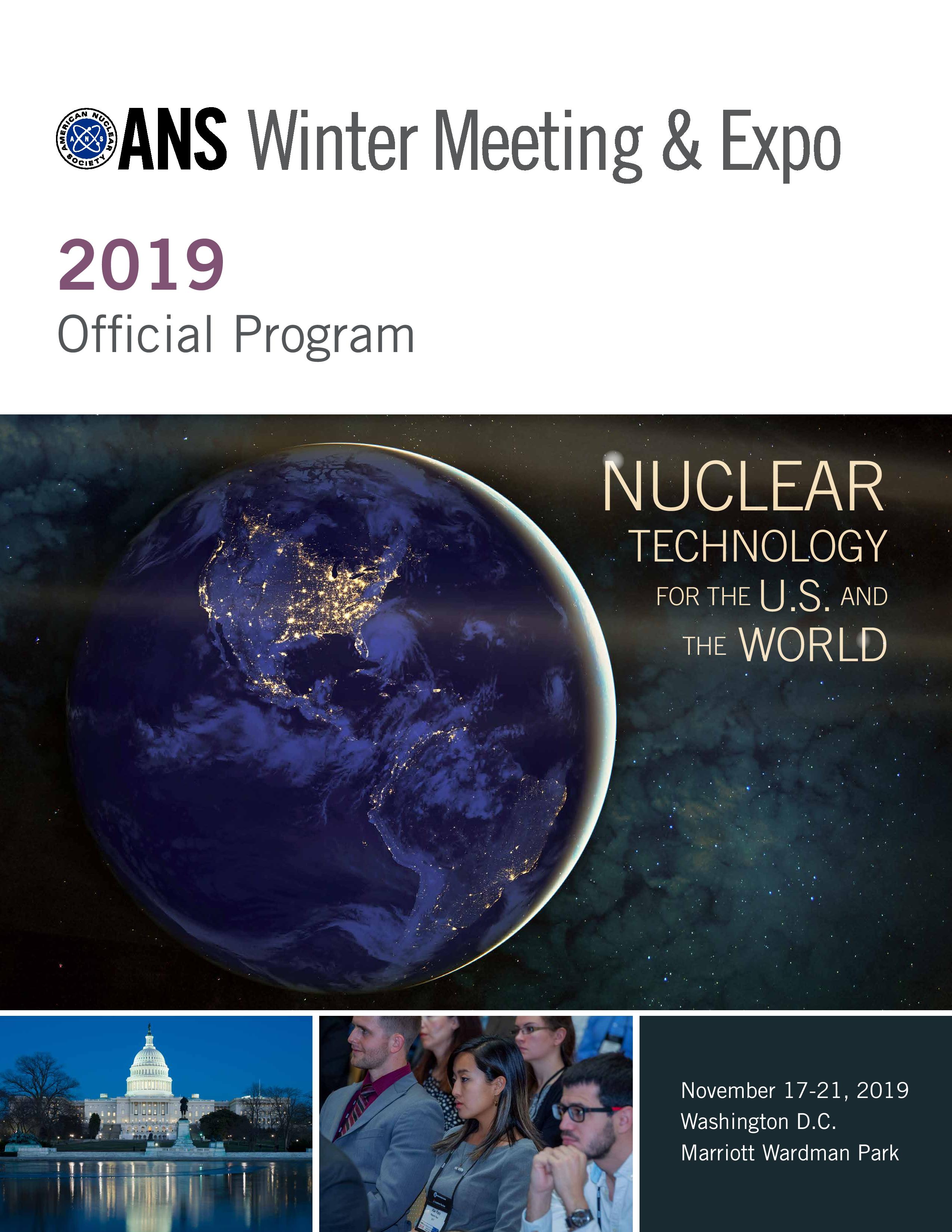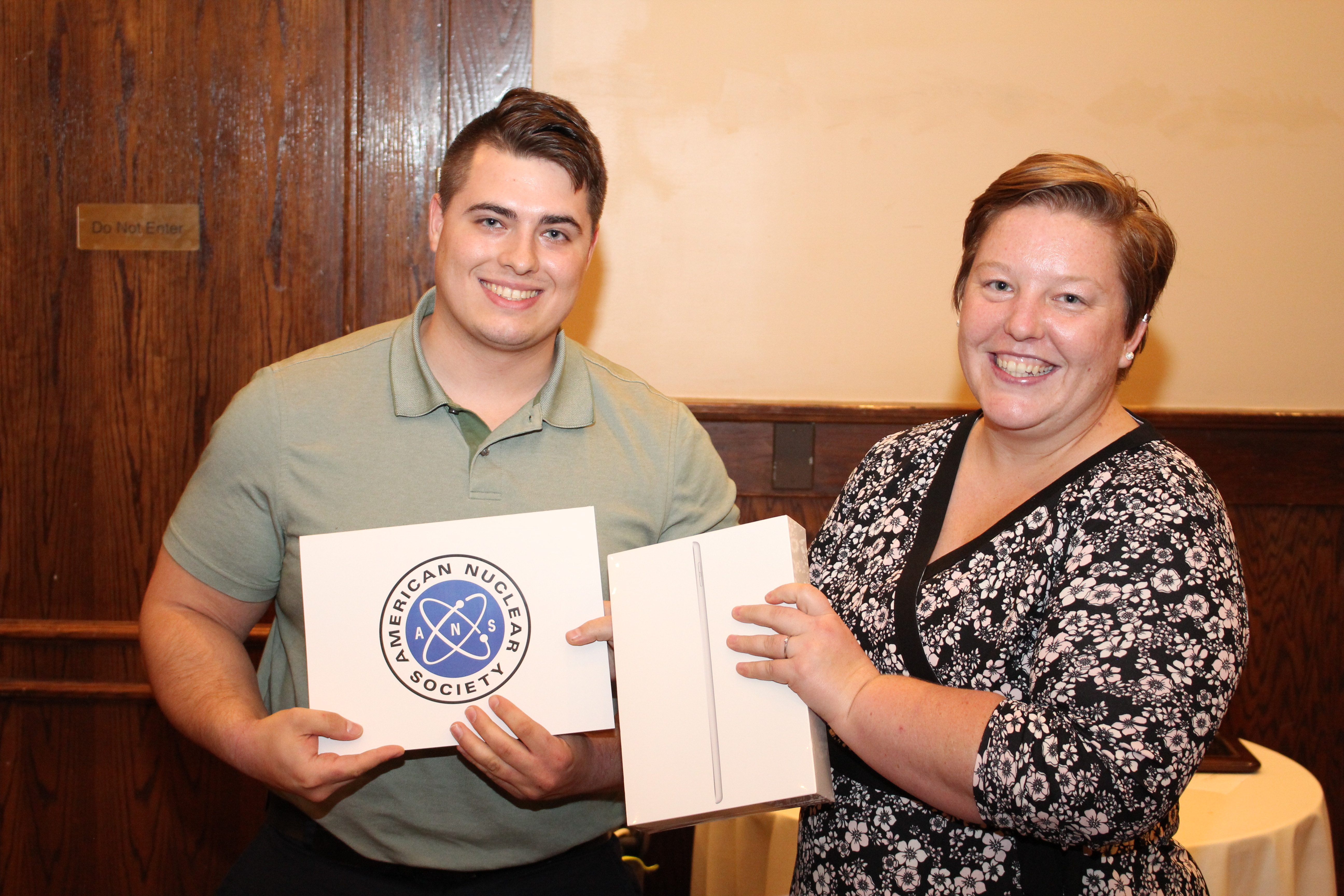Meetings
ANS 2019 Winter Meeting
Washington, D.C. • November 17-21, 2019
Recent Nuclear Criticality Safety Program Technical Accomplishments
Session Organizer: Lori Scott (NCSP) Cochairs: Angela Chambers (NNSA), Douglas G. Bowen (ORNL)
- International Criticality Benchmark Comparison for Nuclear Data Validation, Isabelle Duhamel (IRSN), J. L. Alwin, F. B. Brown, M. E. Rising, K. Y. Spencer (LANL), D. Heinrichs, S. Kim (LLNL), B. J. Marshall, E. M. Saylor (ORNL) (139 downloads)
- Recent SCALE Activities Within the Nuclear Criticality Safety Program, W. A. Wieselquist (ORNL) (128 downloads)
- Automated Acceleration and Convergence Testing for Monte Carlo Nuclear Criticality Safety Calculations, Forrest B. Brown (LANL) (143 downloads)
- Evaluation and Validation of 181Ta Unresolved Resonance Region Cross Section, Jesse M. Brown, Amanda Youmans (RPI), Michael J. Rapp (Naval Nuclear Lab.), Ezekiel Blain (RPI), Devin P. Barry (Naval Nuclear Lab.), Yaron Danon (RPI)
- Time Series Neutron Data from Subcritical Experiments for Validation of Radiation Transport Codes, Anthony J. Nelson, William Zywiec, Soon S. Kim (LLNL), Wilfried Monange (IRSN), David Heinrichs (LLNL) (151 downloads)
- Sandia BUCCX Titanium and Aluminum Sleeve Experiments, David E. Ames, Gary A. Harms, John T. Ford, Rafe D. Campbell (Sandia) (146 downloads)
Steve Bowman Memorial Session: Evolution of SCALE–Panel
Session Organizer and Chair: William Wieselquist (ORNL)
This session is dedicated to the memory of Mr. Steve Bowman. In this panel session we will present the evolution of the SCALE code package, highlighting the contributions of Steve Bowman, who passed away in October 2018. Mr. Bowman began his nuclear career at the Tennessee Valley Authority (TVA), where he worked from 1980-1984 as a core analyst. He then left TVA for Virginia Power in 1984, serving as an analyst and code developer of the NOMAD code system. In 1989, Mr. Bowman joined Oak Ridge National Laboratory where he would stay until his retirement in 2018. He became involved with SCALE early in his ORNL career. From 1993-1995, he successfully ported SCALE to a PC (version 4.4), developed the ORIGEN-ARP GUI interface, and drove development of the SCALE ENDF/B-V 44-group nuclear data libraries. Mr. Bowman became the manager of the SCALE code system in 1995, a position he would hold for 14 years. The panel will present a survey of SCALE records focusing on Mr. Bowman’s achievements, with lighthearted user and sponsor feedback collected over the years. The panel will close with the opportunity for audience driven Q&A.
Panelists:
Mark DeHart (INL)
Germina Ilas (ORNL)
Matt Jessee (ORNL)
Richard Lee (NRC)
Rob Lefebvre (ORNL)
Cecil Parks (ORNL)
Brad Rearden (ORNL)
William Wieselquist (ORNL)
Impacts to Criticality Safety from Recent Revisions to DOE Standards–Panel,
Session Organizers: Andrew Prichard (PNNL), John Miller (SNL), Kevin Kimball (CNS, ret.)
Chair: Joseph A. Christensen (SHINE Medical Technologies)
Over the last couple of years, there have been several changes to DOE Orders and Standards that impact nuclear criticality safety (NCS) practices (e.g., 420.1C, 3009, 3007). NCS programs across the complex are starting to implement these changes. This panel session will have experts from various sites across the complex to discuss the basis and reasoning behind the changes, how these changes were/are being implemented, and the lessons learned during implementation. The panel will also explore any unintended consequences from these changes and if the expected benefits from these changes are being realized.
Panelists:
David Erickson (SRS) (138 downloads)
Chris Haught (CNS) (142 downloads)
David Heinrichs (LLNL)
John Miller (SNL) (146 downloads)
Garrett Smith (DOE)
Implications of NCS Analysis Process Drift–Panel
Session Organizers: Christopher Haught (Consolidated Nuclear Security), John Miller (SNL), Andrew Prichard
(PNNL) Chair: Brandon Little (Value Added Solutions)
All new processes with fissionable material are evaluated for criticality safety before operations are started; a common problem is that with time the processes change. This panel session will discuss specific operations, the types of changes that have occurred, and the impact of process drift on criticality safety. The focus of the panel session is identifying lessons learned and how they might apply to other organizations.
Panelists:
Chris Haught (CNS)
Andrew Prichard (PNNL)
James Bunsen (LANL) (138 downloads)
Spencer Jordan (Y-12) (129 downloads)
Larry Wetzel (BWXT) (141 downloads)
Data, Analysis and Operations in Nuclear Criticality Safety—I
Session Organizer: Theresa Cutler (LANL) Chair: Norm F. Schwers (SNL)
- The 2019 Edition of the ICSBEP Handbook, John D. Bess (INL), Tatiana Ivanova, Ian Hill (OECD), Lori Scott (INL) (131 downloads)
- Redux Analysis of D2O Reflected Plutonium Foils at Low Temperature, William J. Zywiec, Anthony J. Nelson (LLNL) (171 downloads)
- Thermal Neutron Scattering Cross Sections of U-10Mo, Andrea A. Saltos, Nickie J. Peters, Karl D. Hammond (Univ Missouri) (156 downloads)
- The Effect of Size and Shape in Heterogeneous Systems of Small Uranium Pieces, Kristina Yancey Spencer (LANL) (130 downloads)
- Seventy-Five Years of Nuclear Criticality Safety Documents—A Bibliography, Brian L. Koponen, David P. Heinrichs (LLNL) (137 downloads)
Data, Analysis and Operations in Nuclear Criticality Safety—II
Session Organizer: Theresa Cutler (LANL) Chair: Lon E. Paulson (GE Hitachi)
- Verification of the 239Pu(NO3)4 Solution Fissile Concentration Subcritical Limit in ANSI/ANS-8.1-2014, Douglas G. Bowen (ORNL), Nicholas W. Brown (Nuclear Fuel Services) (134 downloads)
- Update on Benchmark Analysis of Component Critical Configurations of KRUSTY, Kristin Smith (Texas A&M), Jesson Hutchinson, Theresa Cutler, Rene Sanchez (LANL) (141 downloads)
- Analytic One-Group S2 Slab Problem with Isotropic Scattering and Fission Applied to Leakage and Neutron Multiplicity Sensitivity, Jeffrey A. Favorite (LANL) (139 downloads)
- Differences in the Use of Nuclide ? Vectors Demonstrated with an Analytic kinf Problem, Jeffrey A. Favorite (LANL) (122 downloads)
- K-Infinite Comparison of Uranium Compounds at 5 wt.% U235, Lon E. Paulson (GE Hitachi) (136 downloads)
Data, Analysis and Operations in Nuclear Criticality Safety—III
Session Organizer: Theresa Cutler (LANL) Chair: Katherin l. Goluoglu (C. S. Engineering, Inc.)
- Effect of keff Varying Reflection on the Estimated Minimum Critical Mass of Moderated 235U, E. M. Saylor (ORNL) (151 downloads)
- Proposed Plutonium-Nickel Critical Experiment, T. Cutler, N. Thompson, A. McSpaden, J. Hutchinson (LANL) (149 downloads)
- Sensitivity/Uncertainty Comparison Study: Oak Ridge National Laboratory Results, E. M. Saylor, W. J. Marshall (ORNL) (134 downloads)
- Bias Between ENDF/B-VIII and ENDF/B-VII.1 for LEU Pin Array Systems, W. J. Marshall (ORNL) (124 downloads)
Data, Analysis and Operations in Nuclear Criticality Safety—IV
Session Organizer: Theresa Cutler (LANL) Chair: William J. Zywiec (George Washington Univ)
- A Graded Approach to the Selection of Minimum Subcritical Margin, Joseph Christensen (SHINE Medical Technol.) (135 downloads)
- Subcriticality Measurement Using Feynman-a Analysis with a Fully Random Sampling and Second-Order Filtering Technique for AGN-201K, Sungho Moon, Jong Hoon Kim, Myung Hyun Kim, Ser Gi Hong (Kyung Hee Univ) (127 downloads)
- Determination of Bounding Axial Burnup Profiles for Criticality Analysis with Burnup Credit for Spent Fuels Discharged from OPR-1000, Dong Jin Kim, Kyu Jung Choi, Ser Gi Hong (Kyung Hee Univ) (159 downloads)
Critical and Subcritical Experiments—I
Session Organizer: Jesson Hutchinson (LANL) Chair: Bill Myers (LANL)
- Designing Critical Experiments Using Gaussian Process Optimization, Isaac Michaud, Noah Kleedtke, Jesson Hutchinson, Travis Smith, Robert Little, Travis Grove, Michael Rising (LANL) (140 downloads)
- Adding (α,n) Emission to an Existing Subcritical Benchmark Statistical Uncertainty Method, J. Hutchinson, J. Arthur, T. Cutler, T. Grove, M. Nelson (LANL) (143 downloads)
- Optimization of Binning Parameters in the Feynman Variance-to-Mean Method for Delayed Neutron Reinterrogation, A. Harvis, J. Determan, J. Hutchinson, W. Myers (LANL) (124 downloads)
- Investigation of Nuclear Safeguards Attributes Through Neutronics Simulation of Pebble Bed Reactor Core, Dany Mulyana, Sunil S. Chirayath (Texas A&M) (143 downloads)
Critical and Subcritical Experiments—II
Session Organizer: Jesson Hutchinson (LANL) Chair: David K. Hayes (LANL)
- Preliminary Designs for Criticality Safety Benchmarks—Iron/Steel/Chromium Series, Nicholas Thompson, Jesson Hutchinson, Theresa Cutler, William Myers, David Hayes (LANL) (139 downloads)
- Prompt Neutron Decay Constant Measurements on a Copper Reflected Intermediate Enrichment Uranium System with Lead Intersitial, George McKenzie, Travis Grove, Rene Sanchez (LANL) (127 downloads)
- Jupiter: A Proposed Benchmark for Lead Void Worth with Plutonium, Alex McSpaden, Joetta Goda, Theresa Cutler, George McKenzie, Jesson Hutchinson, Nicholas Thompson (LANL) (136 downloads)
- Two-Exponential Rossi-Alpha Analysis of Copper- and Polyethylene-Reflected Plutonium, M. Y. Hua (Univ Michigan, LANL), C. A. Bravo (Univ Michigan), J. D. Hutchinson, G. E. McKenzie (LANL), S. A. Pozzi (Univ Michigan) (141 downloads)
Introduction to NCSD Mentor Match (123 downloads)
Session Organizers: Hannah Morbach (BWXT), Jennifer Alwin (LANL), John Miller (SNL),
MacKenzie Gorham (DOE-ID) Chair: Jennifer Alwin (LANL)
This session will describe the NCSD Mentor Match program, which leverages a modular framework to connect
mentors and mentees based on past experience, desired skillsets, and communication preferences. NCSD Mentor
Match allows participants to focus on areas such as calculational methods, conducting walkdowns, writing CSEs,
responding to reviewer and/or regulator questions/comments, CAAS analysis, validation, in situ experiments, work/
life balance, university teaching, hand calculations, presenting at ANS meetings, critical experiments, solution
processing analysis, vault storage analysis, understanding ANS standards … to name a few. The program will also
connect participants based on communication preferences and identify expectations for the program.
Panelists:
Jen Alwin (LANL)
Mackenzie Gorham (DOE-ID)
James Bunsen (LANL)
Session Title: “ANS-8 Standards Forum”
Session Type: Discussion
Session Organizer: Doug Bowen (ORNL)
Summary: Subcommittee ANS-8, Operations with Fissile Material Outside Reactors, meets to discuss various technical and administrative aspects of the approximately 20 national consensus standards under its purview. In addition to status and progress updates by representatives of individual working groups, formal presentations on the technical bases of numerical values such as subcritical limits and experiences with applications of particular standards are solicited. Agenda topics such as new and expanded standards are also encouraged.
Session Title: “Recent Nuclear Criticality Safety Program Technical Accomplishments”
Session Type: Contributed Papers
Session Organizer: Lori Scott (SAIC)
Summary: The Nuclear Criticality Safety Program (NCSP) has been doing interesting technical work supporting the DOE criticality safety enterprise, as well as benefiting the nuclear community as a whole. There are few opportunities to learn about these efforts since they cannot all be presented at an ANS meeting. However, an NCSP Technical Seminar was held. The goal of this seminar was to have each NCSP Task Manager present their technical results from FY 2018. Specifically, the presentations provided a summary of: the work that was done; why the work was done; and who benefited from the work or could potentially benefit across the DOE as well as the nuclear complex. This led to an opportunity for the NCSP to showcase outstanding NCSP technical accomplishments and as a result, the best technical results that will have the most benefit to the nuclear community as a whole have been compiled and those presenters will provide these technical results at the 2019 ANS Winter Meeting.
Session Title: “Impacts to Criticality Safety from Recent Revisions to DOE Standards”
Session Type: Panel
Session Organizer: Kevin Kimball (CNS retd), John Miller (SNL), Andrew Prichard (PNNL)
Summary: Over the last couple of years, there have been several changes to DOE Orders and Standards that impact Nuclear Criticality Safety (NCS) practices (e.g., 420.1C, 3009, 3007). NCS programs across the complex are starting to implement these changes. This Panel session will have experts from various sites across the complex to discuss the basis and reasoning behind the changes, how these changes were/are being implemented and the lessons learned during implementation. The Panel will also explore any unintended consequences from these changes and if the expected benefits from these changes were realized.
Session Title: “Implications of NCS Analysis Process Drift”
Session Type: Panel
Session Organizer: Andrew Prichard (PNNL)
Summary: All new processes with fissionable material are evaluated for criticality safety before operations are started; a common problem is that with time the processes change. This panel session will discuss specific operations, the types of changes that have occurred, and the impact of process drift on the criticality safety. The focus of the panel session identify lessons learned and how they might apply to other organizations.
Session Title: “Critical and Subcritical Experiments”
Session Type: Contributed Papers
Session Organizer: Jesson Hutchinson (LANL)
Session LEAD sponsor: NNPD [not submitted by NCSD]
Summary: Critical and subcritical experiments are performed every year to support a variety of national security missions, including nuclear nonproliferation, counter-proliferation, criticality safety research and development, nuclear emergency response, and a variety of hands-on training. Papers on critical and subcritical experiments (design, measurement, analysis, methods) will showcase current work in this area.
Session Title: “Introduction to NCSD Mentor Match”
Session Type: Discussion
Session Organizer: Deb Hill (UK NNL); Hannah Morbach (BWXT); Jennifer Alwin (LANL)
Summary: This session will describe the NCSD Mentor Match program, which leverages a modular framework to connect mentors and mentees based on past experience, desired skillsets, and communication preferences. NCSD Mentor Match allows participants to focus on areas such as calculational methods, conducting walkdowns, writing CSEs, responding to reviewer and/or regulator questions/comments, CAAS analysis, validation, in situ experiments, work/life balance, university teaching, hand calculations, presenting at ANS meetings, critical experiments, solution processing analysis, vault storage analysis, understanding ANS standards…to name a few. The program will also connect participants based on communication preferences and identify expectations for the program.
Session Title: “Data, Analysis and Operations in Nuclear Criticality Safety”
Session Type: Contributed Papers
Session Organizer: Theresa Cutler (LANL)
Confirmation Number: Summary: The purpose of this session is to provide a forum for timely presentation of general issues in the area of nuclear criticality safety that are not covered in other special session topics.
*likely 2 sessions based on number of papers submitted
 Loading...
Loading...
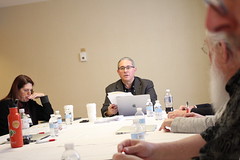
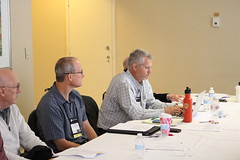

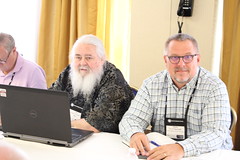
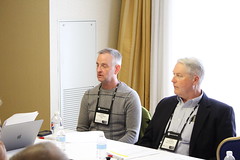
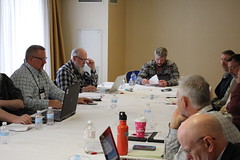
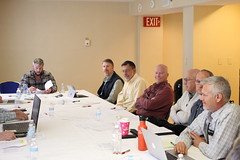
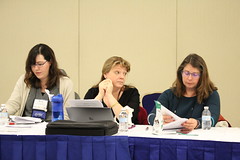
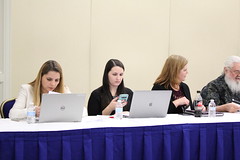
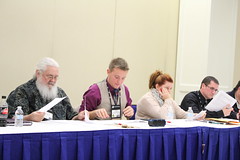
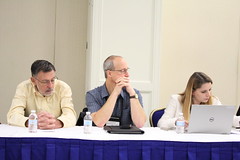
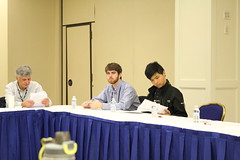
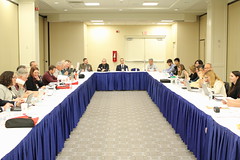
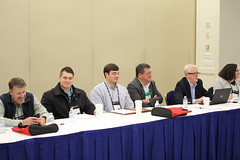
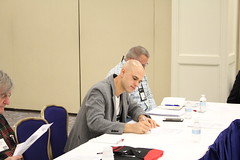

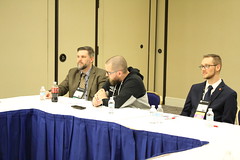
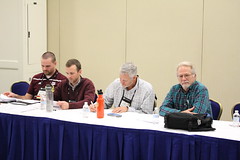
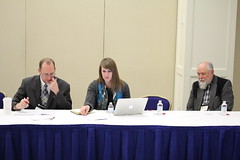
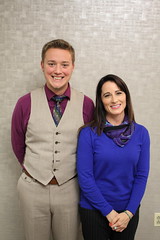
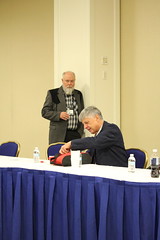
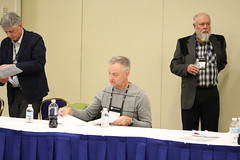
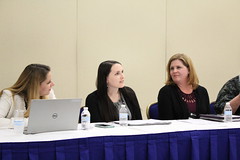
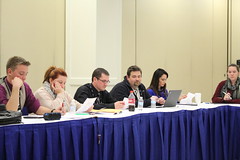
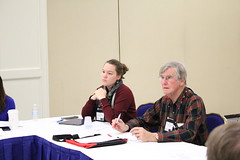
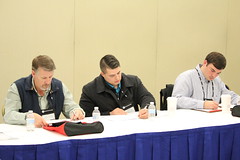
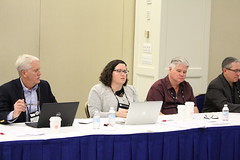
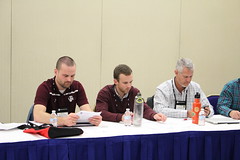
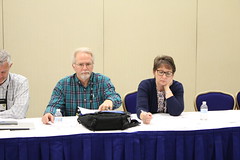

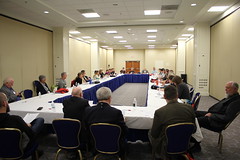
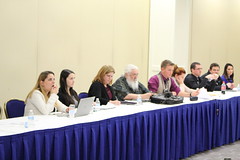
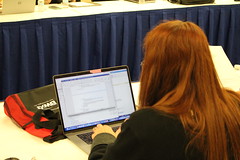
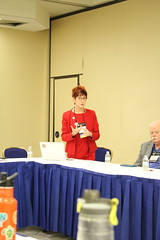
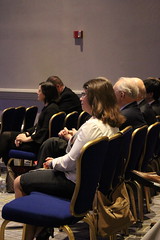
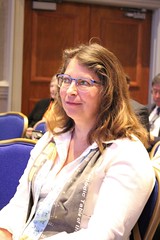
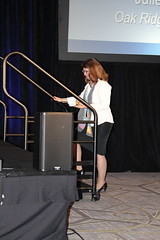
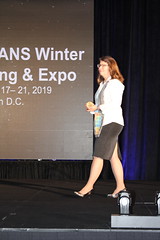
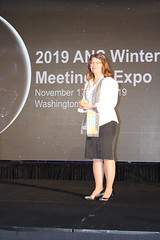
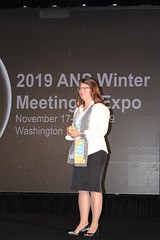
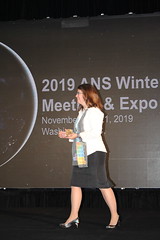
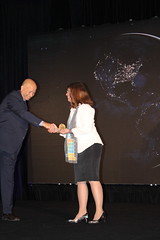
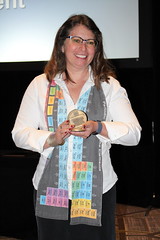
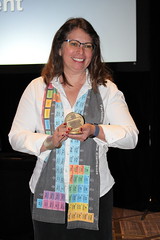
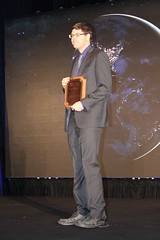
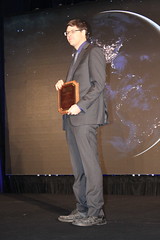
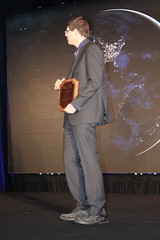

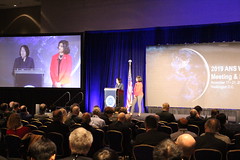
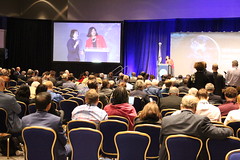
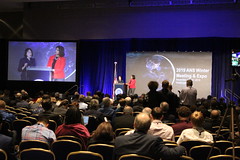
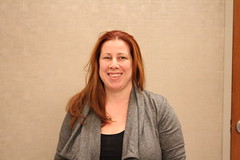
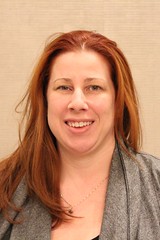
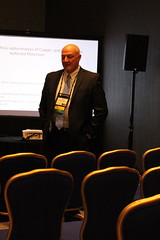
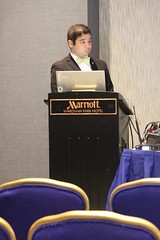
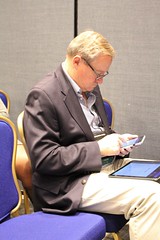
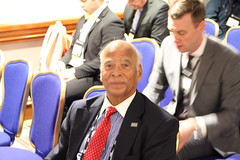
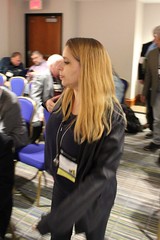
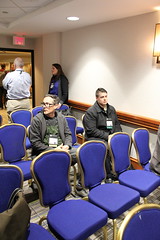
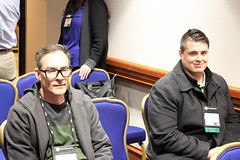

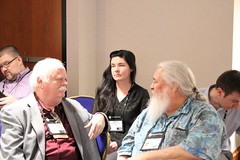
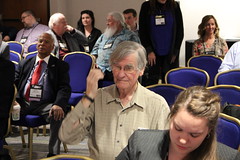
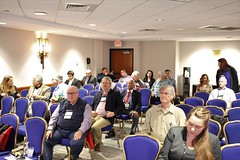

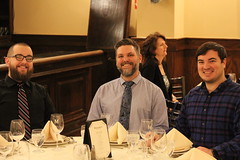
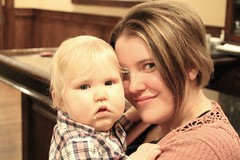
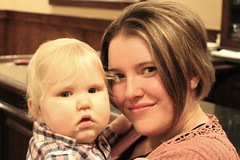
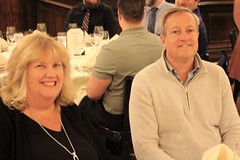
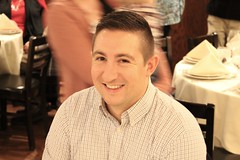
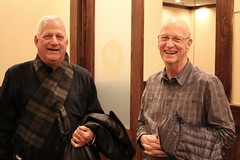
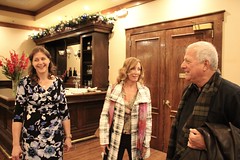
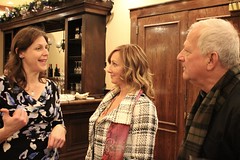
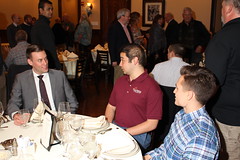
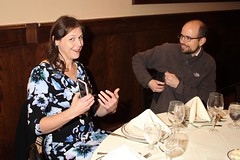
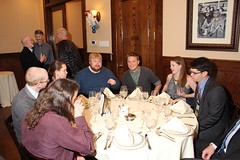
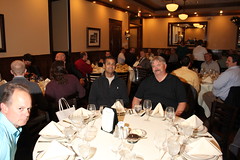
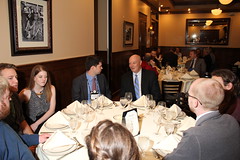
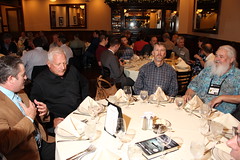
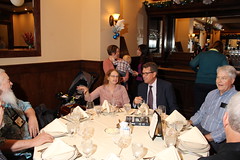
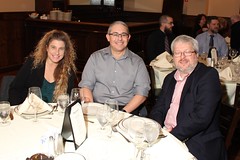
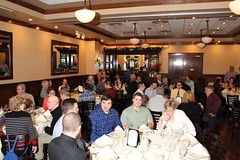
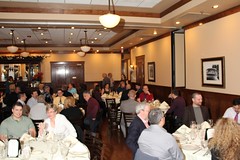

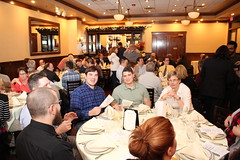
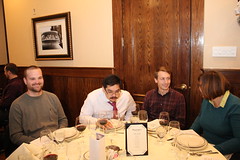
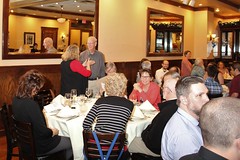
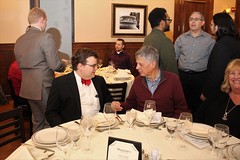
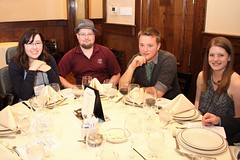
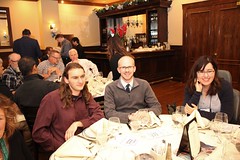
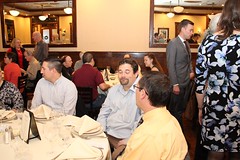
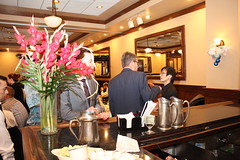
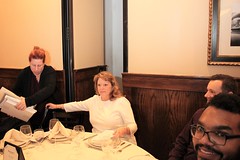
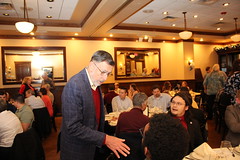
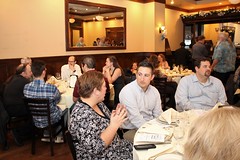
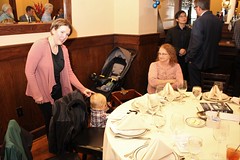
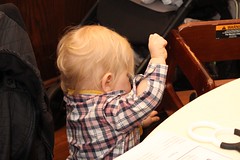
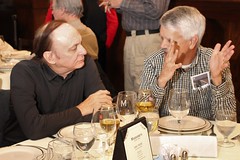
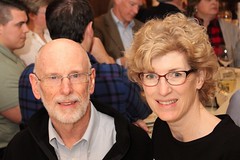
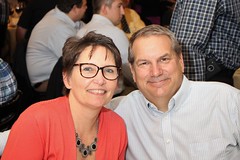
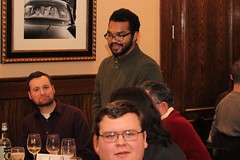
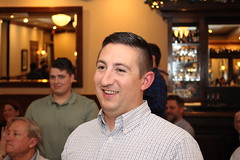
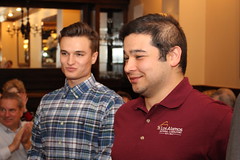
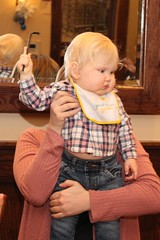
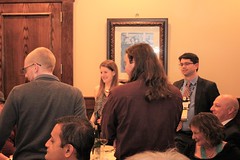
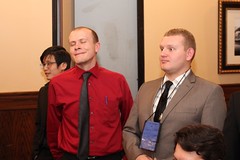
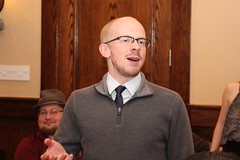
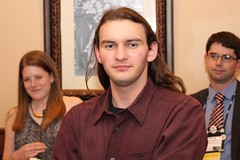
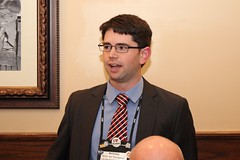
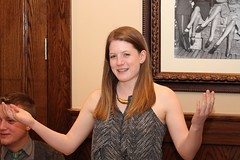
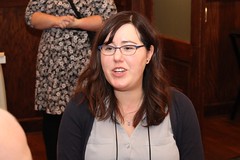
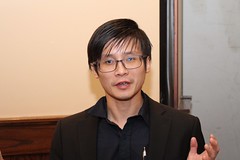
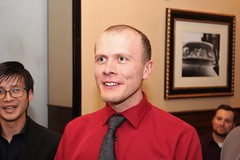
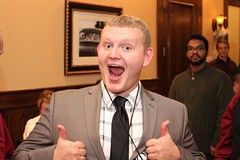
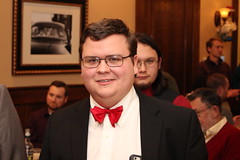
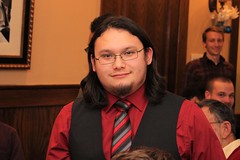
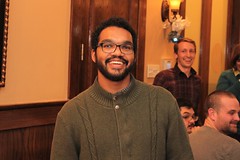
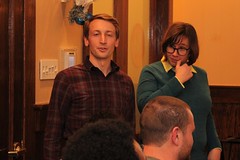
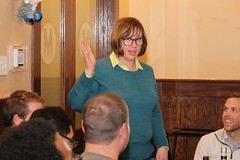

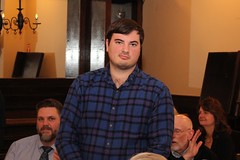
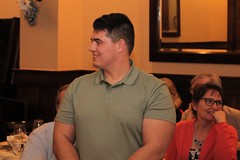
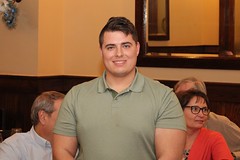
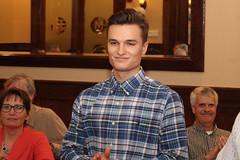
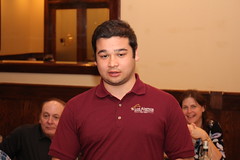
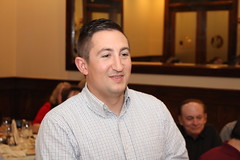
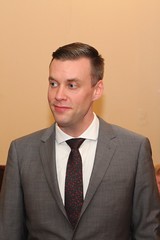
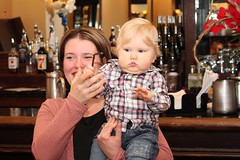
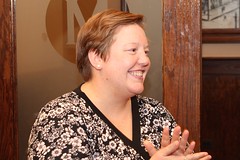
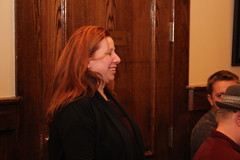
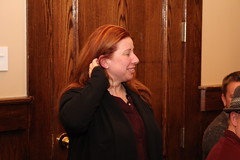
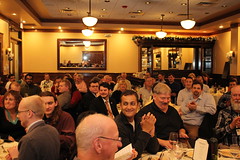
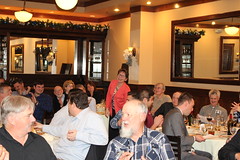
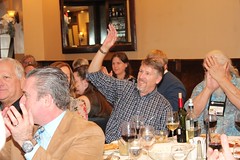
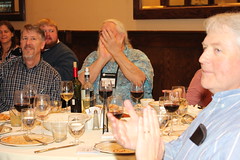
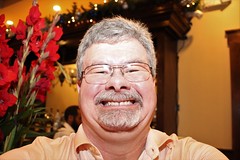
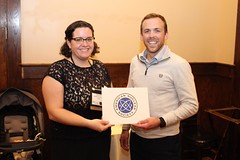
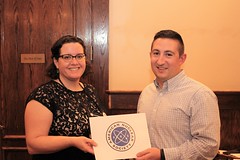
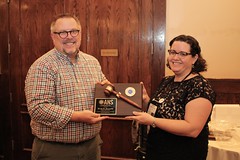
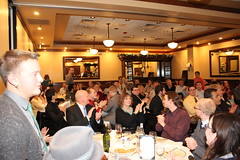
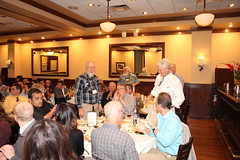
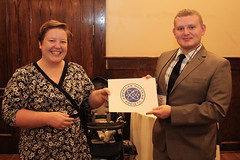
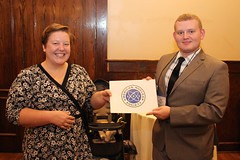
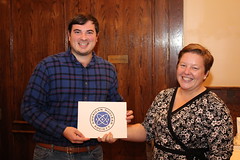

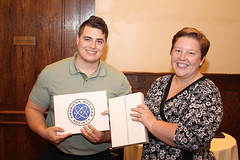
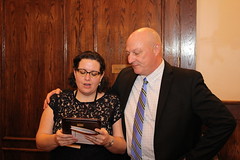
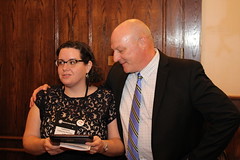
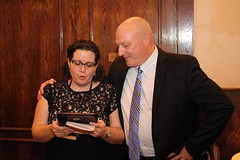
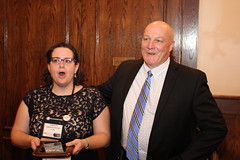
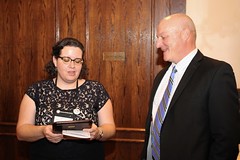
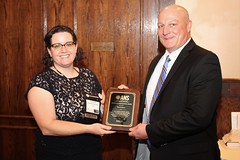
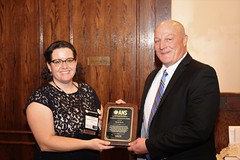
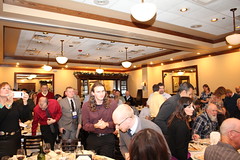
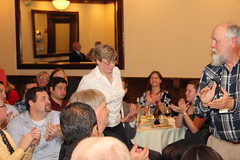
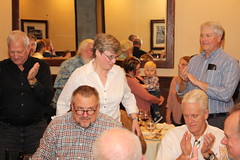
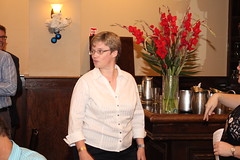
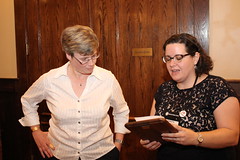
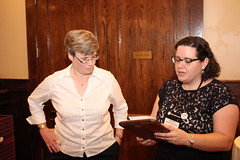
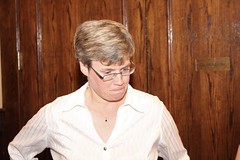
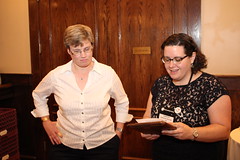
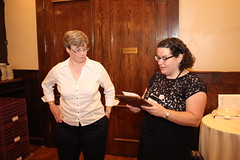
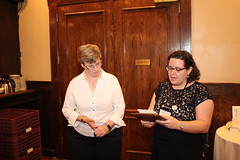
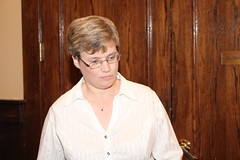
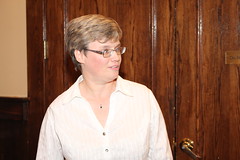
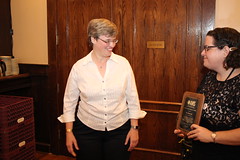
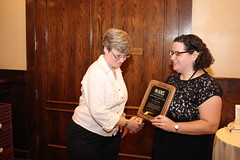
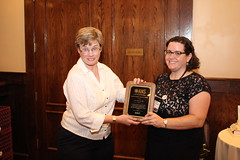

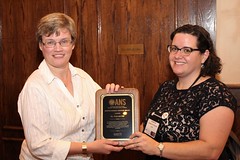
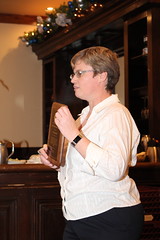
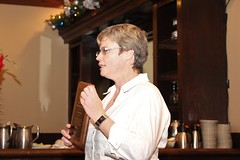
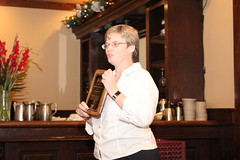
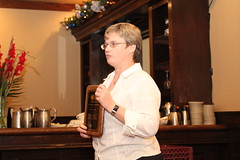
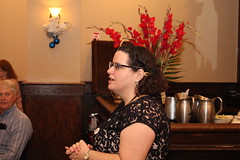
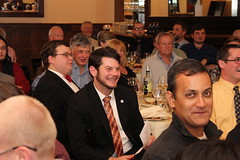
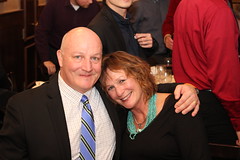
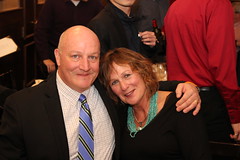
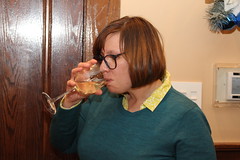
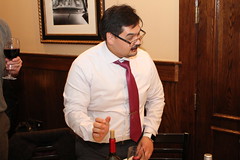

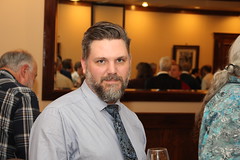
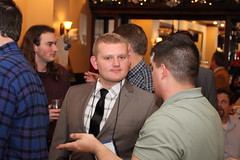
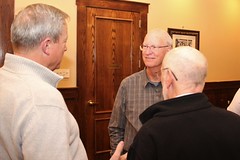
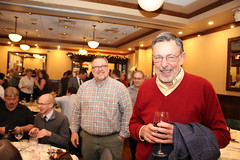
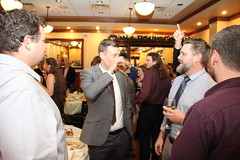
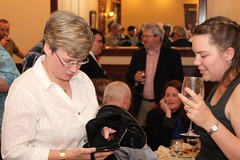
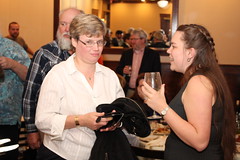
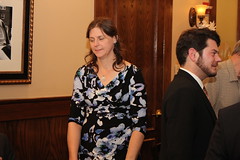
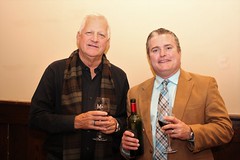
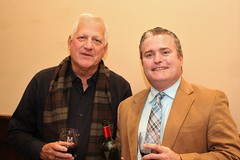
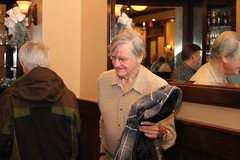
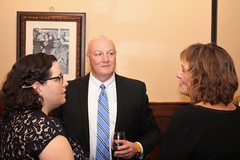
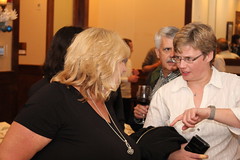
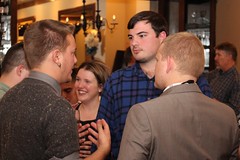
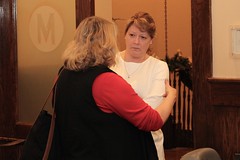
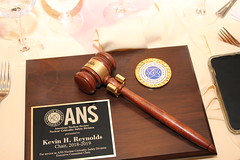
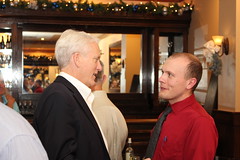
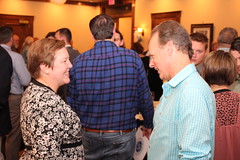
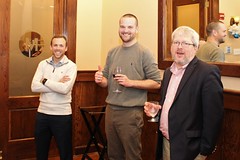
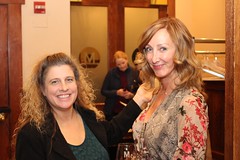
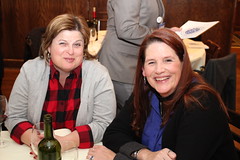
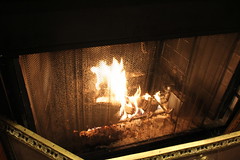
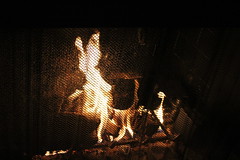
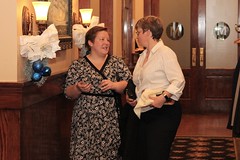
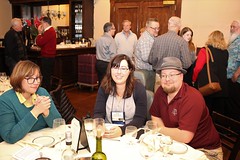
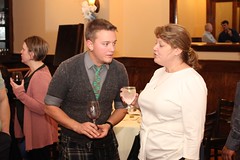
The NCSD’s Third Annual Criticality Safety Design Competition was held during the 2019 ANS Winter Meeting at Washington D.C. All the winners were able to attend the Annual NCSD dinner.
The winners (and their pictures) are listed below:
1st place: Brandon Little – iPad
2nd place: Michael Fendler – One year paid ANS Membership
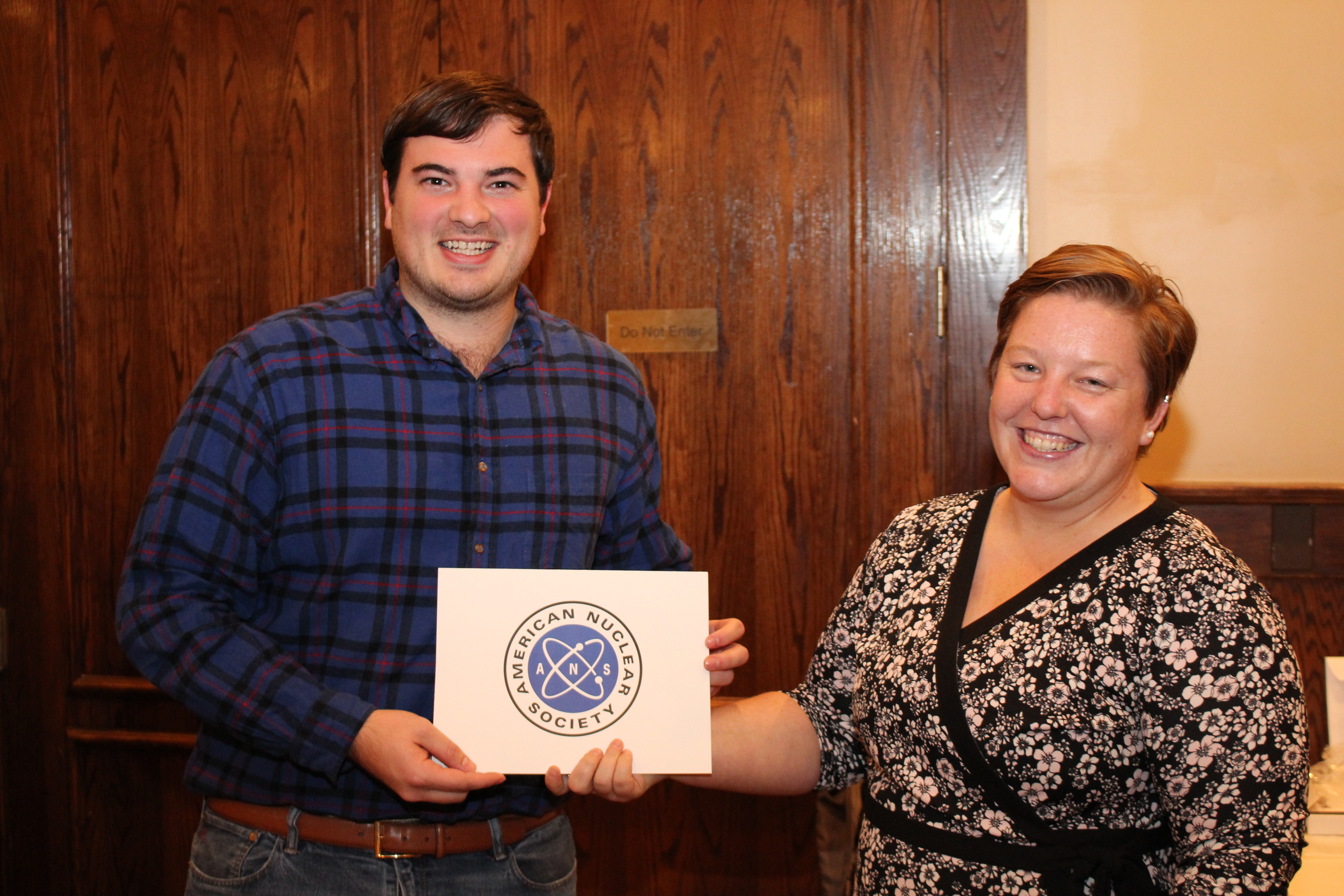
3rd place: Zachary Deziel
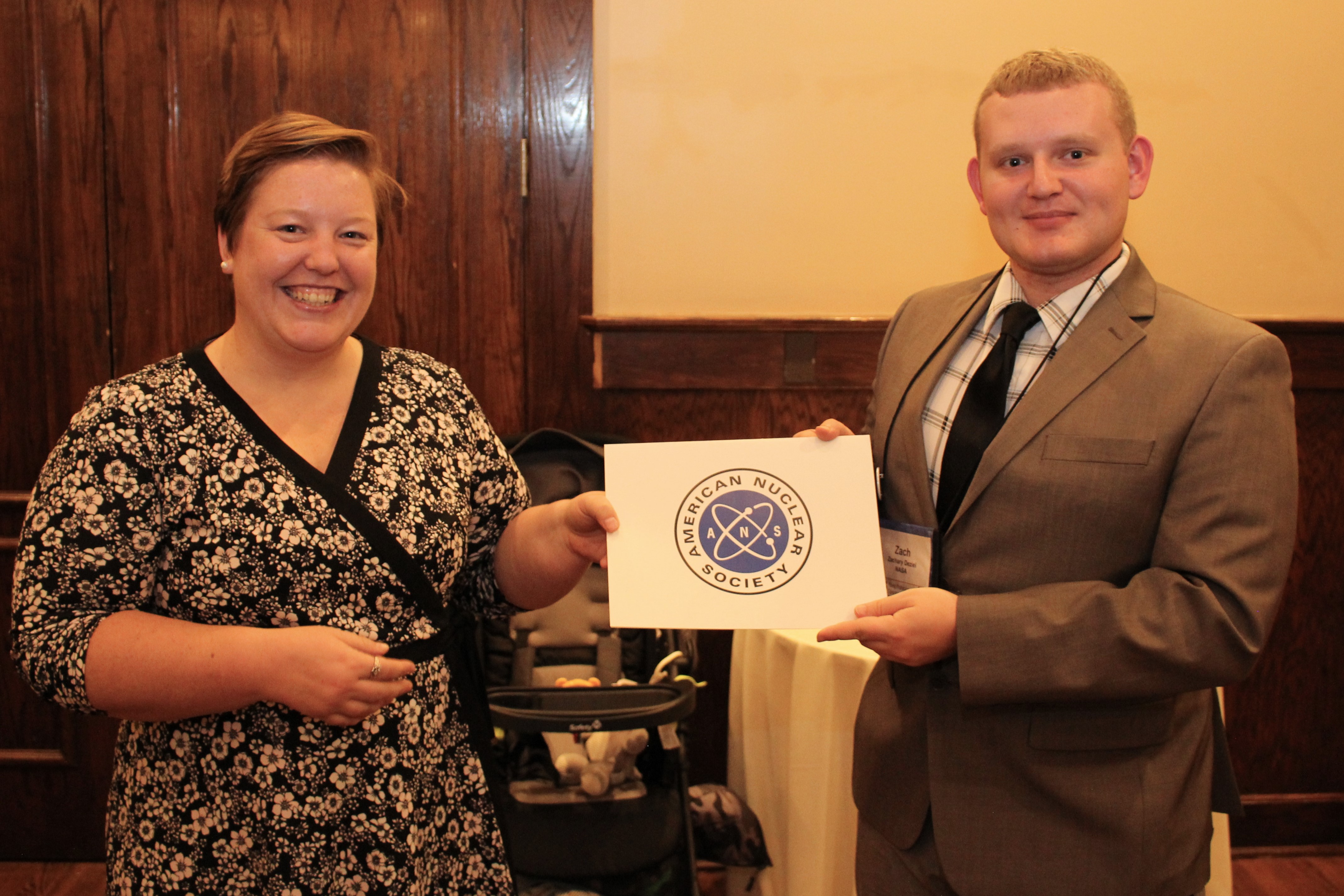
4th – 6th place (not in order): Michael Hua, Wei Eng and Noah Kleedtke
Stay tuned, maybe we’ll have another one next year!

